Top 10 Most Underrated NBA Stars Of The 2000s
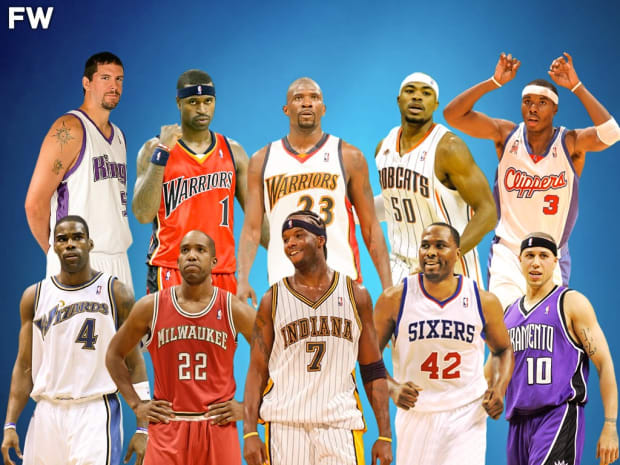
We have seen a host of very talented yet underappreciated stars during the past 20 years. Looking at the 2000s specifically, many All-Star caliber players did not get the recognition they deserved. This happened because other great players such as Kobe Bryant, Tracy McGrady, Tim Duncan, and Shaquille O'Neal were the faces of the NBA and grabbed all the headlines all the time.
By looking at individual statistics, team impact, and skills during their era; we have compiled a ranked list of the best stars who went underappreciated during their time. Here are the 10 most underrated stars during the 2000s.
10. Quentin Richardson
10.3 PPG, 4.7 RPG,1.5 APG, 0.8 SPG, 0.2 BPG
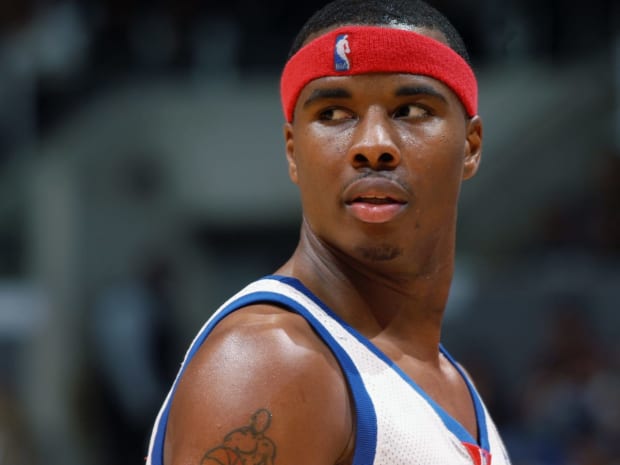
Drafted with the No. 18 pick in the 2020 draft, there were high hopes for Richardson's career. He was a 6'6" shooting guard who could also play the small forward position and had solid defensive skills. On offense, he was a great spot-up shooter and that's why he is mainly known for being a shooter during the Steve Nash era in Phoenix.
Richardson was drafted by the Clippers and had his best season in 2004 with the team averaging 17.2 PPG. One year later, he joined the Phoenix Suns where he averaged 14.9 PPG on 35.8% shooting from three. Richardson's ability to help teams defend the perimeter and also score when needed makes him an underrated player during the 2000s.
9. Brad Miller
11.2 PPG, 7.1 RPG, 2.8 APG, 0.7 SPG, 0.7 BPG
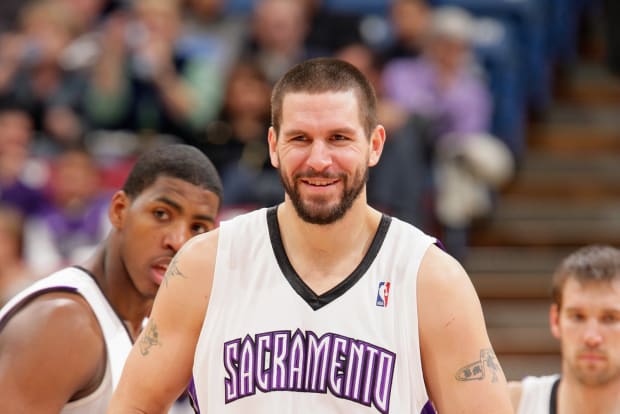
Brad Miller was a rare center in the 2000s because he had a consistent mid-range jump shot. Miller played 14 seasons in the NBA, mainly for the Kings and Bulls. Miller also had an All-Star season with the Pacers in 2003 where he averaged 13.1 PPG and 8.3 RPG.
One year later with the Kings, Miller would have a career year averaging 14.1 PPG and 10.3 RPG while making his second straight All-Star Team. Miller would go on to play 5 more seasons with Sacramento. Miller had solid shooting numbers for a big man at that time, finishing with career averages of 80.4% from the line and 48.0% from the field.
8. Stephen Jackson
15.1 PPG, 3.9 RPG, 3.1 APG, 1.3 SPG, 0.4 BPG
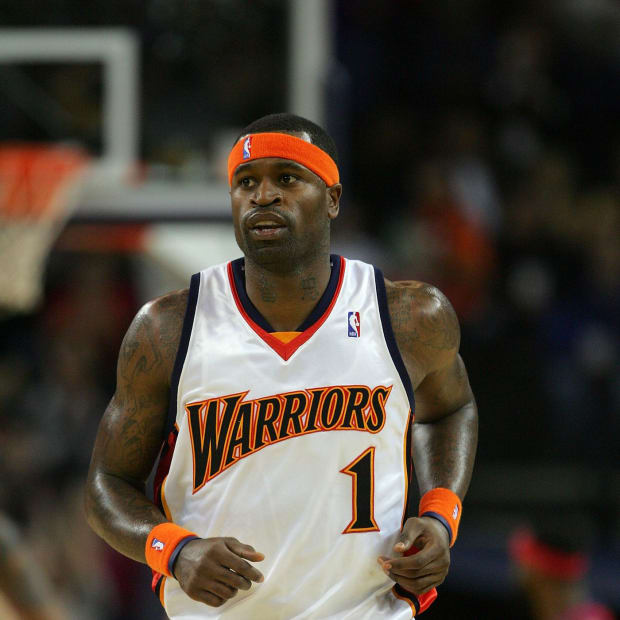
One of the most outspoken NBA analysts in the media, Stephen Jackson was a player that his teammates absolutely loved. He was a tough forward who played hard-nosed defense and never backed down from any challenge. Jackson is mainly known for his stints with the Indiana Pacers and the Golden State Warriors.
With Indiana, Jackson was part of a tough crew featuring Ron Artest and Jermaine O'Neal that was also involved in the Malice at the Palace. Jackson would have his best seasons with the Golden State Warriors averaging over 20 PPG for 3 straight seasons. Jackson's role in the Warriors upset over the #1 seed Dallas Mavericks will forever be remembered.
7. Corey Maggette
16.0 PPG, 4.9 RPG, 2.1 APG, 0.7 SPG, 0.2 BPG
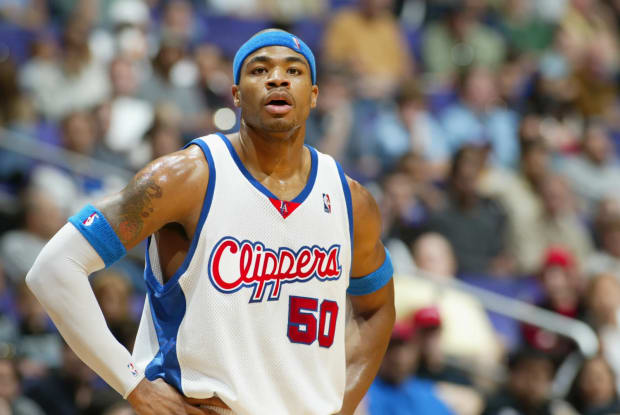
Corey Maggette was one of the most consistent scorers during the 2000s. He had a ton of athleticism and scoring prowess in his 6'6" frame, and played the majority of his career with the Los Angeles Clippers. Averaging 16.0 PPG, he is one of the most recognizable offensive players for the Clippers over the last 20 years.
Maggette had his best seasons during the 2004, 2005, and 2008 seasons. He averaged 20.7 PPG, 22.2 PPG, and 22.1 PPG during those years while missing out on All-Star Teams despite his scoring. As only the No.13 pick, Maggette is one of the most underrated players during his era due to his impact on the Clippers.
6. Jason Richardson
17.1 PPG, 5.0 RPG, 2.7 APG, 1.2 SPG, 0.4 BPG

One of the best dunkers in NBA history, Richardson's athleticism often took eyes away from his all-around game. Richardson was a solid scorer throughout his career and was a very capable defender. As the No. 5 pick in the 2001 draft, Richardson was expected to be one of the most impactful shooting guards in the NBA and he was certainly underappreciated in his time.
Richardson made the All-Rookie Team in 2001 by averaging 14.4 PPG and 4.3 RPG for the Golden State Warriors. He would improve his scoring over the next few seasons, boosting his scoring to a career-high 23.2 PPG during the 2006 season. That was the year Richardson became a solid 3-point shooter, as he nailed 38.4% of his threes. As a two-way player and one of the best athletes to ever play the game, Richardson was a gem in his prime.
5. Mike Bibby
14.7 PPG, 3.1 RPG, 5.5 APG, 1.2 SPG, 0.1 BPG
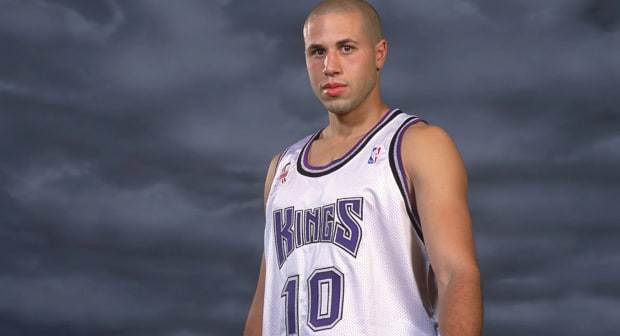
Mike Bibby is one of the most popular and respected point guards in NBA history. Bibby had a handle and jump shot that was among the best in his time, and he had tremendous success with Chris Webber in Sacramento. Even though he never made an All-Star Team, Bibby certainly played like one and he was a major reason the Kings were a problem in the West.
Bibby made the All-Rookie Team in 1999, averaging 13.2 PPG and 6.5 APG for the Vancouver Grizzlies. His stint with the Kings started in 2002 where he averaged 17.6 PPG and 5.4 APG over 7 seasons with the franchise. Bibby's best season came in 2006 where he averaged 21.1 PPG and 5.4 APG for the Kings squad that finished with a 44-38 record.
4. Antawn Jamison
18.5 PPG, 7.5 RPG, 1.6 APG, 1.0 SPG, 0.4 BPG
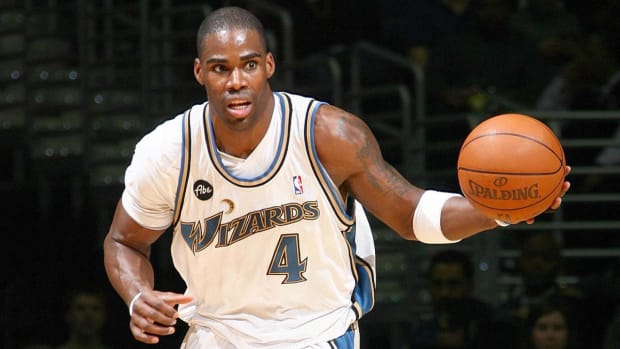
Mainly known for his part with the Washington Wizards Big Three including Gilbert Arenas and Caron Butler, Jamison was a consistent scoring star in the NBA. But looking at his career as a whole, Jamison was an All-Star caliber talent. Drafted with the No. 4 pick in the 1998 draft, Jamison made the All-Rookie Team with the Warriors averaging 9.6 PPG and 6.4 RPG.
Only one year later, Jamison jumped his stats tremendously averaging 19.6 PPG and 8.3 RPG followed by a career-high in scoring at 24.9 PPG. After two more seasons, he would win 6th Man of the Year with the Dallas Mavericks in 2004. Jamison would then form part of a consistent team with the Wizards, making 2 All-Star Teams during his tenure there and solidifying himself as one of the best power forwards in the NBA during his time.
3. Michael Redd
19.0 PPG, 3.8 RPG, 2.1 APG, 0.9 SPG, 0.1 BPG
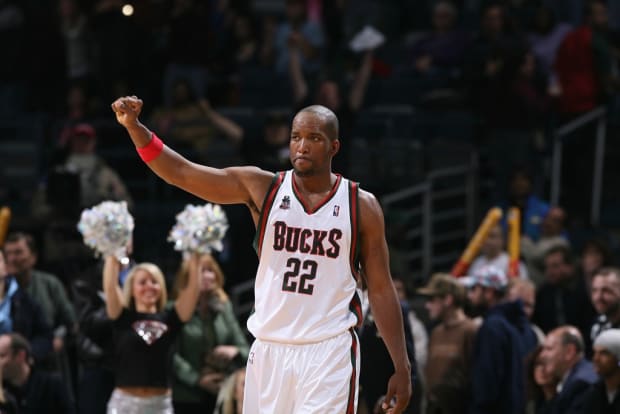
Injuries took away superstar potential from Michael Redd, but he was an offensive machine when he was healthy. Redd blossomed as a scorer in his 4th season, averaging 21.7 PPG on 35.0% shooting from three. He also made the All-Star Team and the All-NBA Third Team after a strong season with the Milwaukee Bucks.
He would have 5 more dominant scoring seasons for Milwaukee by averaging 23.0 PPG, 25.4 PPG, 26.7 PPG, 22.7 PPG, and 21.2 PPG. His jump shooting was his strongest attribute but unfortunately, his career took a dip after suffering injuries that never made him the same player after the 2009 season. Redd shot a career 38.0% from three and his 6 straight years of scoring prowess rank him 3rd on this list.
2. Elton Brand
15.9 PPG, 8.5 RPG, 2.1 APG, 0.9 SPG, 1.7 BPG
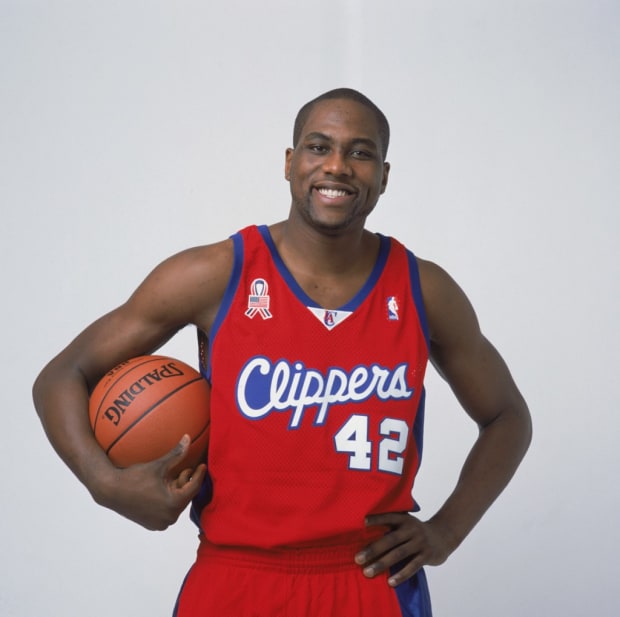
Elton Brand is the most underrated star of the 2000s because he managed to have 2 All-Star Seasons after being drafted No.1 in the 1999 Draft. He averaged 20.1 PPG and 10.0 RPG in his rookie season with the Chicago Bulls, making the All-Rookie Team. He would average a double-double over the next 4 seasons, and by his third season, he was a member of the Los Angeles Clippers. In his first season in Los Angeles, he made his first All-Star Team.
As one of the best big men in Clippers history, Brand had a superstar season in 2006 averaging 24.7 PPG, 10.0 RPG, and 2.5 BPG. Brand lasted two more seasons at an elite level with the Clippers before age and attrition took a toll on his body. Elton Brand was a special big man on offense and on the boards, and he was one of the most underappreciated players during his time.
1. Jermaine O’Neal
13.2 PPG, 7.2 RPG, 1.4 APG, 0.5 SPG, 1.8 BPG
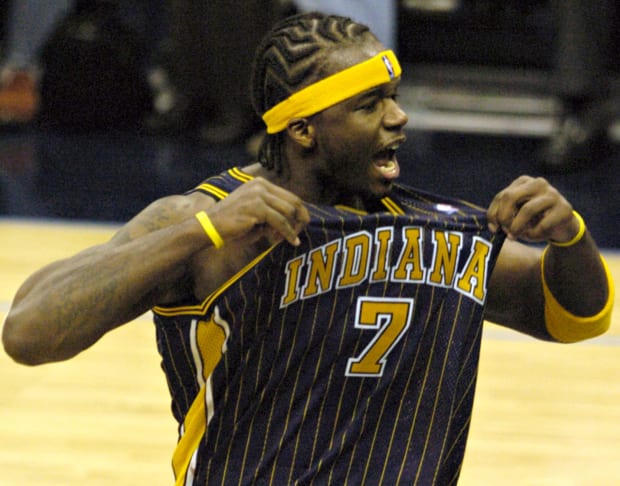
Not related to Shaquille O'Neal, Jermaine O'Neal was one of the best big men in the NBA during his time. As a member of the Indiana Pacers, O'Neal was a very gifted two-way big man. O'Neal had a very slow start to his career, before blossoming into an All-Star in his 6th season. His scoring jumped from 12.9 PPG to 19.0 PPG, and he made his first All-Star Team in 2002 for the Pacers. O'Neal also won the Most Improved Player of the Year Award that same year.
O'Neal would average a double-double over the next 2 seasons in Indiana, and make 5 straight All-Star Teams. O'Neal's strongest season came in 2005 by averaging 24.3 PPG, 8.8 RPG, and 2.0 BPG. O'Neal had a strong inside scoring game, was very active on the offensive boards, and was a capable shot-blocker. Out of all the players on this list, O'Neal was the most talented big man and also one of the most underrated players during his time.
Post a Comment
0 Comments